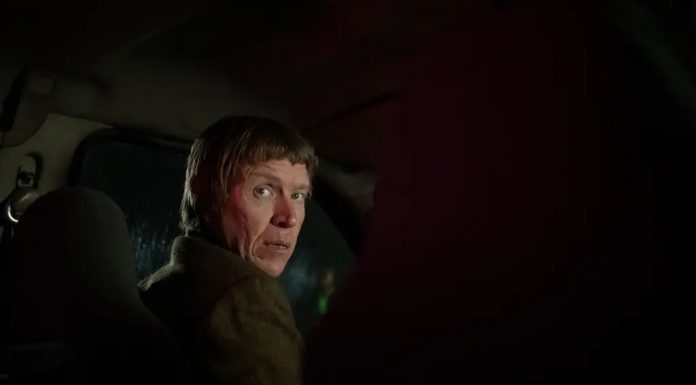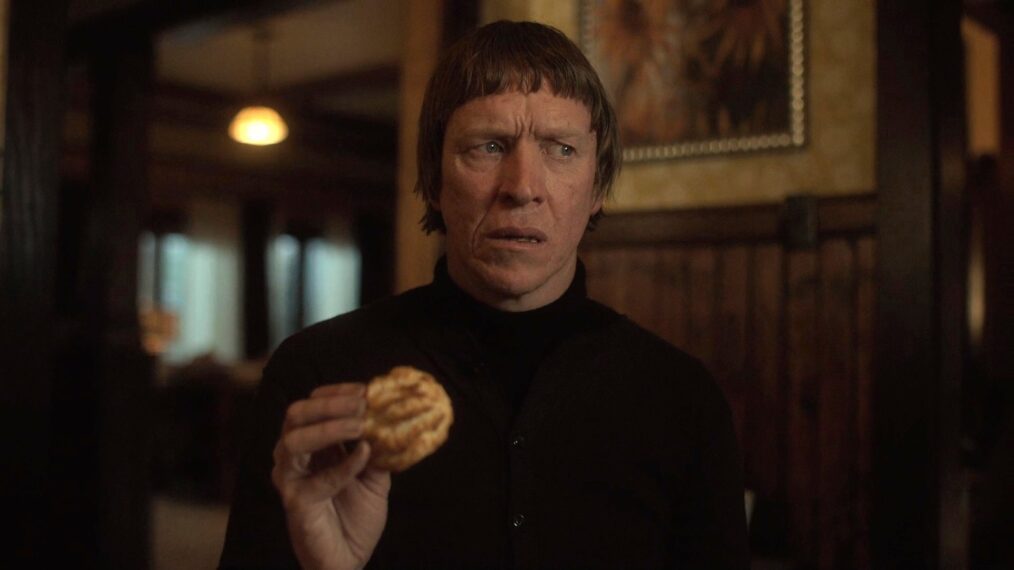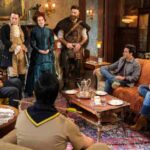The tenth episode, “Bisquik,” was the thrilling end to Fargo Season 5. Sam Spruell‘s performance as Ole Munch made him stand out in this season’s interesting story. As the different storylines of the season came to a close, the ending had some surprises, especially in how Ole Munch’s interesting character arc was resolved. This piece goes into detail about Ole Munch’s mysterious journey and the important events that led up to the shocking ending.
[Season Finale] Fargo Season 5 Episode 10 Recap
Fargo Season 5 Finale: What Happened to Ole Munch?
In Season 5 of Fargo, the character Ole Munch becomes a strange, ageless figure with a complicated past that goes back hundreds of years. At first, Munch was shown as a hired killer, but as the story went on, his part changed in a way that no one saw coming. As part of Sheriff Roy Tillman’s plan, he had to take Dot Lyon, who used to go by the name Nadine.
Munch’s character, on the other hand, went beyond the usual hitman stereotype. In Episode 3, viewers get a look into Munch’s strange life, which began in Wales in 1522. The scene of Munch eating sin showed a big part of his life and stuck him in a circle of sin for the rest of his life. His trip took him to America, where he lived for 300 years and didn’t say a word for 100 years.
The last episode of Fargo Season 5 ended Ole Munch’s story in a way that surprised and delighted viewers. After getting Dot Lyon out of the hole under the windmill at Tillman Ranch, Munch seemed to leave the scene, which meant he was done with her. But an unresolved bill that kept making him feel bad brought him back to Dot’s life. In the end, Munch and Dot had an interesting conversation in her living room, which set the stage for a surprising turn of events.
The Dinner Scene: Getting rid of Old Habits and Accepting New Things
In the last few minutes of Fargo Season 5, Ole Munch’s surprise return to Dot’s house. There was a beautiful dinner scene that showed how Ole Munch changed throughout the season. He says that they need to talk about some unfinished business. Dot knew that she owed Munch something, so she did something brave by asking him to dinner with her family. At first, this scene was tense, but it turned into a strong look at forgiveness, kindness, and breaking free from the chains of the past.
Working together to make Bisquick cookies became a metaphor for how love and understanding can change things. For Dot, making Munch wash his hands before sitting down with them at the table was a sign of a clearing of old grudges and animosities. The surprising change that happened after this simple act was set off by it.
As the Lyon family made awkward small talk with Munch, the mood slowly changed from tension to a surprising sense of friendship. Not only did Dot’s question, “Ever drive a Kia, Mr. Munch?” add a funny touch, but it also brought out the simple but real parts of human connection.
The skilled actor who played Ole Munch, Sam Spruell, talked a lot about how complicated Munch’s journey was and how important the ending was. Spruell says that Munch’s choice not to pay the debt wasn’t made on the spur of the moment, but because of an itch in his head that he couldn’t ignore.
In an interview, Sam Spruell said that when he first read the script, he had some questions, especially about Munch’s sudden exit after setting Dot free. He said that Munch, as a character, was done with Dot at first, but an unsolved itch made him go back to the situation.
Spruell, also talked about the bigger ideas that Munch’s character explored, focusing on how difficult it was to show a character with a past that goes back 500 years. The scene where Munch ate sin showed how he had been trapped in sin for hundreds of years.
The actor talked about how important it was for Munch to accept Dot’s gift of love and kindness, which was shown by him tasting the Bisquik cookie. Spruell said he hoped this small act would help break Munch out of his cycle of misery and lead him to a new life full of love, kindness, and sympathy.
Fargo Season 5 Finale: What Happened To Gator Tillman?








